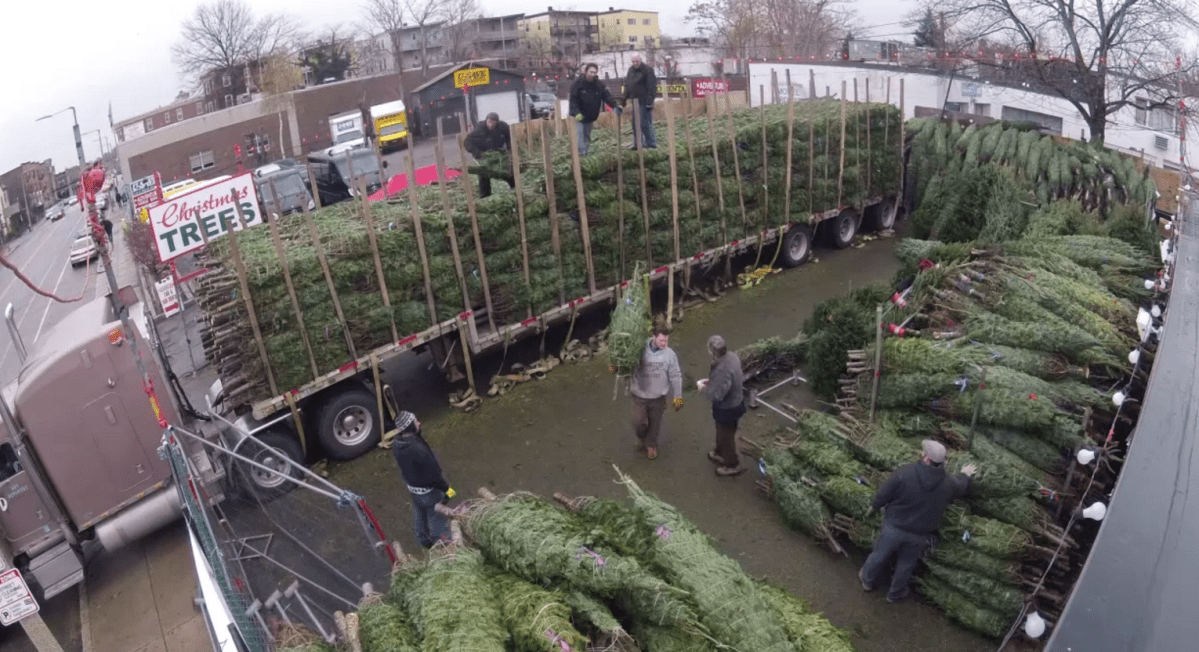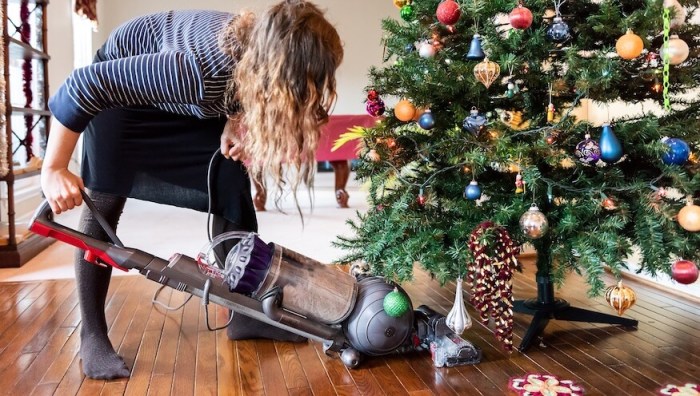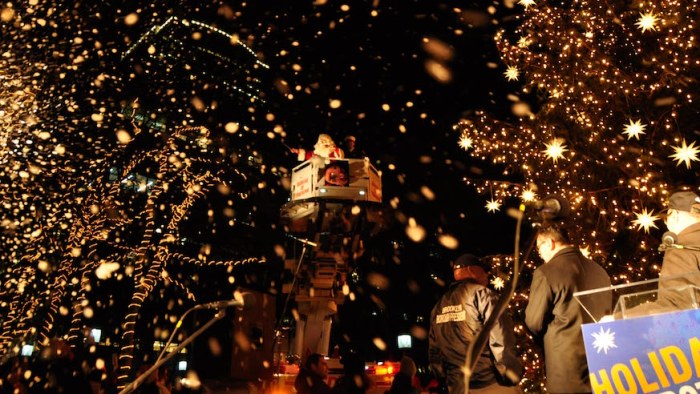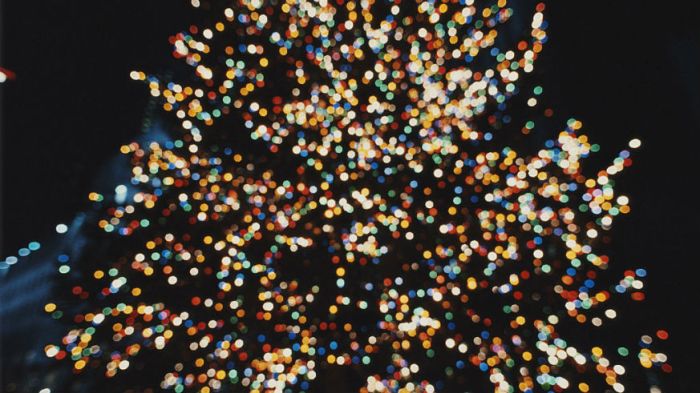For some, the beginning of the holiday season coincides with a trek to pick out a Christmas tree. But not for Gelinda Hawkins. She has had the same artificial tree for 20 years.
“I can use it, technically, for forever,” she said, while holiday shopping in the Watertown Target. More Americans seem to be following Hawkins’s way of thinking. Eighty-one percent of all Christmas trees that will adorn homes this holiday — 100 million households across the country — will be artificial, according to a survey conducted by Nielsen for the American Christmas Tree Association (ACTA). ACTA is a nonprofit that says it aims to help people pick between real and artificial trees by providing tips on buying each kind. However, Tim O’Connor, executive director of the National Christmas Tree Association (NCTA), an advocacy group for the Christmas tree industry, doesn’t trust ACTA’s findings. “The American Christmas Tree Association is the association for the fake tree industry,” he said. “They of course have concocted a study that says ‘more people like our product than the real thing.’ I don’t buy that.” On its tip page for choosing a type of Christmas tree,ACTA saysthat “unlike living trees, artificial Christmas trees are an investment.” But is that investment one that’sbetter for the environment? “The first ever ‘Life Cycle Analysis’ comparing the average real Christmas tree purchased in the U.S. to the average artificial Christmas tree purchased in the U.S. concluded that neither type of tree has a measurable impact on the environment,” said Jami Warner, executive director of ACTA. Warner said that ACTA recommends families buy the type of tree that fits their lifestyle best, noting both can have advantages.
“An artificial tree can be reused year after year and is very easy to display and take down at season’s end. A real tree has that unmistakable Christmas tree smell but must be watered daily, which is an absolute must, and can be messy,” he said. “Both types of trees can be recycled, although there are more programs available for recycling real trees.” ACTA encourages people to buy locally grown Christmas trees if they want a real one, and luckily that’s pretty easy to do in Massachusetts. There are more than 400 farms here either exclusively growing Christmas trees or which have them as a significant portion of their annual business, according to John Lebeaux, commissioner of the Massachusetts Department of Agricultural Resources. That’s about 3,000 acres in the Commonwealth just for cultivating Christmas trees — a net economic value of approximately $1.4 million a year.
The biggest advantage for an artificial tree seems to be that you can reuse it, but there’s some disparities on how effective that is. A 2010 study cited by and sponsored by ACTA found that it takes the same energy to make one artificial tree as it does to raise six real trees. The study concluded that the environmental impacts of one artificial tree, if used for more than eight years, is “environmentally friendlier” than buying eight (or more) Christmas trees over that same time period. Those findings differ starkly from a 2009 study by an environmental consulting firm in Canada, then called Ellipsos. That study found that a natural tree contributes almost 40 percent less carbon dioxide emission than an artificial tree. Though artificial trees can be reused, this study found that “it would take, however, approximately 20 years before the artificial tree would become a better solution regarding climate change.” While you can recycle an artificial tree once comes to the end of its life, Lebeaux noted, there are many things you can do with a live Christmas tree, that both individuals or Christmas tree farms with excess carry out. “The branches can be removed and they’re an excellent mulching material, or they can be used to protect perennials and other small plants over course of the winter,” he said. “Some trees can be burned and produced energy, or can be chipped up … In some cases, trees have even been put into the water for fish habitat. They can be sunk down as places for fish to hide from predators, that’s been done.” Wally Orechia, a worker at Boston Christmas Trees in Allston(which has been operating for more than 45 years),added that real trees are being used along Massachusetts beaches as barriers to prevent erosion. Christmas tree farms also serve as habitats for wild animals as they’re growing throughout the year, Lebeaux said. For people concerned about the fact that those trees are ultimately cut down, Andy Finton, director of conservation programs for The Nature Conservancy in Massachusetts, assured that they’re replenished. “For every real tree cut down, one to three seedlings are planted in its place, and that’s a big plus for the people and the planet,” Finton said. “Real trees store carbon while they are in the ground. Additionally, more than half of our nation’s water is sourced from our forests, where trees help absorb pollutants and make the water cleaner.” With about 3,000 acres in Massachusetts devoted to growing Christmas trees, Lebeaux said real Christmas trees are obviously an effective business. Plus, if those acres weren’t set aside for trees, they would probably be developed. “Christmas trees are often grown on soils that are not high quality enough for other crops,” Lebeaux said. “You don’t have to plow it, it can be a hillside; It doesn’t have to be a beautiful, flat piece of land as when growing corn or tomatoes.” This same land, then, couldn’t necessarily be turned into another type of farm.
“It increases the amount of open space we have in the state,” Lebeaux said. “These farmers have to make a living, and if they don’t, something else has to happen to the land — most frequently, a development.” Though ACTA says only 19 percent of people are buying real trees this year, Lebeaux doesn’t believe that figure either.His family operated a garden center that sold Christmas trees for 60 years, and he said that the amount of people buying fake trees ebbs and flows constantly. “As I recall, the information that would come out from industry groups, it would be a wave, ups and downs on real versus artificial throughout time,” he said. “There’s a significant portion of the population that enjoys having a real Christmas tree every year.” Orechia agreed. On Sunday, he said, so many people were shopping at Boston Christmas Trees that they were just picking ones that were still bundled up, lying off to the side. The workers couldn’t put trees on the stands that display them for customers fast enough. Greg Dillon bought a tree from that lot Monday afternoon, when there wasn’t as much of a crowd. He said that he would never consider an artificial tree, but not really for environmental reasons. He just never had one while growing up. “It mostly gives the house a good smell of the holidays,” he said. “It’s my first year in a new place, so I thought it’d be nice to have a real tree.”
“It saves money and you’re not cutting down trees.”
Should you buy a real or artificial Christmas tree?

Vimeo


















